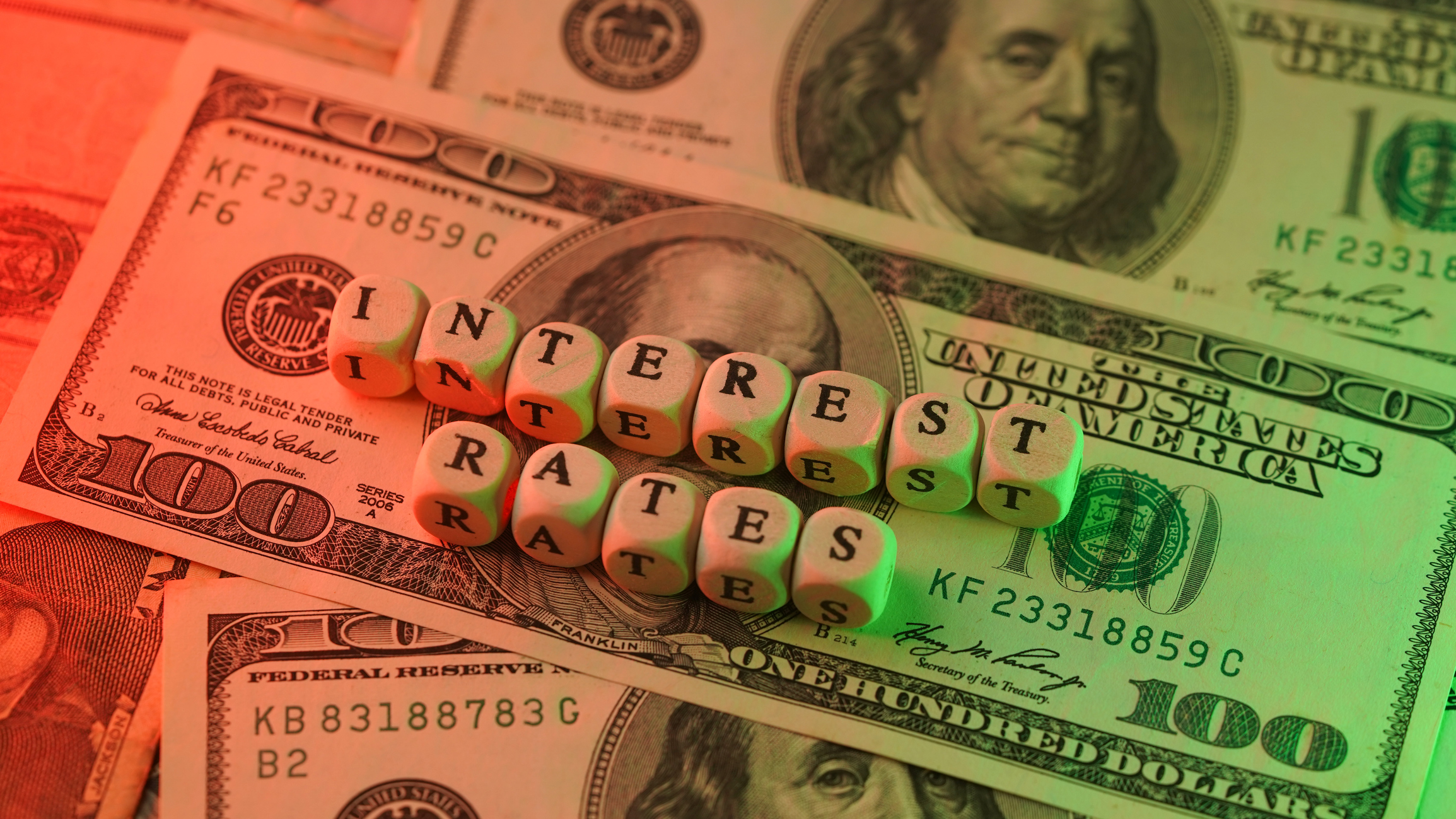Should You Get a Long-Term or Short-Term CD Before the Next Fed Meeting?
Is a long-term or short-term CD better to open before the Fed meeting next week? Here's what you need to know.

Rachael Green
Profit and prosper with the best of Kiplinger's advice on investing, taxes, retirement, personal finance and much more. Delivered daily. Enter your email in the box and click Sign Me Up.
You are now subscribed
Your newsletter sign-up was successful
Want to add more newsletters?

Delivered daily
Kiplinger Today
Profit and prosper with the best of Kiplinger's advice on investing, taxes, retirement, personal finance and much more delivered daily. Smart money moves start here.

Sent five days a week
Kiplinger A Step Ahead
Get practical help to make better financial decisions in your everyday life, from spending to savings on top deals.

Delivered daily
Kiplinger Closing Bell
Get today's biggest financial and investing headlines delivered to your inbox every day the U.S. stock market is open.

Sent twice a week
Kiplinger Adviser Intel
Financial pros across the country share best practices and fresh tactics to preserve and grow your wealth.

Delivered weekly
Kiplinger Tax Tips
Trim your federal and state tax bills with practical tax-planning and tax-cutting strategies.

Sent twice a week
Kiplinger Retirement Tips
Your twice-a-week guide to planning and enjoying a financially secure and richly rewarding retirement

Sent bimonthly.
Kiplinger Adviser Angle
Insights for advisers, wealth managers and other financial professionals.

Sent twice a week
Kiplinger Investing Weekly
Your twice-a-week roundup of promising stocks, funds, companies and industries you should consider, ones you should avoid, and why.

Sent weekly for six weeks
Kiplinger Invest for Retirement
Your step-by-step six-part series on how to invest for retirement, from devising a successful strategy to exactly which investments to choose.

Many feel certain that the Federal Reserve will pause cutting interest rates at the upcoming Fed meeting on January 28.
Considering savings rates hang in the balance, this should be a closely watched decision if you have savings goals in the short- to medium-term.
According to the CME Group's Fed Watch tool, economists are overwhelmingly confident that the Fed will hold rates at the 3.50% to 3.75% range next week. Looking ahead to the subsequent meeting, which is in March, analysts anticipate the central bank will continue holding rates where they are, with some expecting another rate cut won't come until spring or summer.
From just $107.88 $24.99 for Kiplinger Personal Finance
Become a smarter, better informed investor. Subscribe from just $107.88 $24.99, plus get up to 4 Special Issues

Sign up for Kiplinger’s Free Newsletters
Profit and prosper with the best of expert advice on investing, taxes, retirement, personal finance and more - straight to your e-mail.
Profit and prosper with the best of expert advice - straight to your e-mail.
If you've waited to open a CD account until now or if your current CD account is nearing maturity, you're likely considering locking in rates ahead of the next meeting. Which CD should you open before the conclusion of the Fed meeting — a short-term or long-term account?
Use the tool below, powered by Bankrate, to compare CD rates today, or keep reading for our recommendations on the best CDs to consider ahead of the January Fed meeting.
Should you get a long- or short-term CD before the Fed meeting?
When comparing current CD rates, you'll notice that the best rates offered are mainly on short-term CDs. However, the difference is minimal.
If you're comfortable with a long-term time commitment, a five-year CD is a solid option now, with some of the top-earning accounts offering 4% APY. While many one-year CDs have rates at about the same level, locking in those rates for longer will pay off in the long run.
Putting $5,000 into a one-year CD with a rate of 4% will earn you more than $200 in interest, if compounded daily. But if you want to open another CD once that one matures, you might have to settle for a much lower rate, depending on what happens in the next year.
On the other hand, if you lock in that 4.% for a five-year CD, you'd maintain that savings rate for five years, earning more than $1,000 in total, if compounded daily.

Locking in high yields for as long as possible can be a smart savings strategy, but there's one factor to consider before you fund the account: When putting money into a CD, you must be prepared to “set it and forget it.”
That means not accessing the cash until the CD matures, which can prove challenging if your cash is tied up for several years. If you withdraw funds early, you'll be charged a fee that can offset any interest earned.
If you can't commit to a long-term CD, it's still worth opening a short-term one. While you run the risk of rates dropping after it matures, it will still help you earn extra cash without tying up your money for an extended time.
It's also worth opening a high-yield savings account, although these accounts won't allow you to lock in rates. For any savings (such as an emergency fund) that you need to be able to access at any time, a high-yield savings account allows you to earn a little interest without tying up your cash.
Use the tool below to explore and compare some of today's best offers, powered by Bankrate:
Rates for long-term CDs are on the rise

In the last several years, there was a surge in the popularity of CD accounts driven by rapidly rising rates in response to the Fed's interest rate-hiking campaign in 2022 and 2023, which pushed the federal funds rate to its highest level since 2001.
Now, there's been uncertainty as people wait to see the impacts of tariffs, concerned about stock market volatility in the face of geopolitical concerns, and unsure of the future of the Fed after Chair Jerome Powell's term, which is set to end in May 2026.
When there is uncertainty, consumers seek ways to keep their savings strong for as long as they can. For many, this now means using longer-term CDs.
While consumer demand for shorter-term CDs dominated for much of 2025, the balance might soon start to shift. In December, five-year CDs saw more APY increases than shorter-term CDs for the first time in over a year, according to a CD Valet analysis.
"Going longer than 12 months comes with risk (but also potential reward), as the economy is now the wild card in the future path of deposit rates," John Blizzard, founder of CD Valet, told Kiplinger. If you can afford to lock up your cash for longer than a year, that might be where you find the strongest yields ahead of the upcoming Fed meeting.
Related Content
Profit and prosper with the best of Kiplinger's advice on investing, taxes, retirement, personal finance and much more. Delivered daily. Enter your email in the box and click Sign Me Up.

Erin pairs personal experience with research and is passionate about sharing personal finance advice with others. Previously, she was a freelancer focusing on the credit card side of finance, but has branched out since then to cover other aspects of personal finance. Erin is well-versed in traditional media with reporting, interviewing and research, as well as using graphic design and video and audio storytelling to share with her readers.
- Rachael GreenPersonal finance eCommerce writer
-
 5 Vince Lombardi Quotes Retirees Should Live By
5 Vince Lombardi Quotes Retirees Should Live ByThe iconic football coach's philosophy can help retirees win at the game of life.
-
 The $200,000 Olympic 'Pension' is a Retirement Game-Changer for Team USA
The $200,000 Olympic 'Pension' is a Retirement Game-Changer for Team USAThe donation by financier Ross Stevens is meant to be a "retirement program" for Team USA Olympic and Paralympic athletes.
-
 10 Cheapest Places to Live in Colorado
10 Cheapest Places to Live in ColoradoProperty Tax Looking for a cozy cabin near the slopes? These Colorado counties combine reasonable house prices with the state's lowest property tax bills.
-
 Look Out for These Gold Bar Scams as Prices Surge
Look Out for These Gold Bar Scams as Prices SurgeFraudsters impersonating government agents are convincing victims to convert savings into gold — and handing it over in courier scams costing Americans millions.
-
 My First $1 Million: Retired Nuclear Power Plant Supervisor, 68, Wisconsin
My First $1 Million: Retired Nuclear Power Plant Supervisor, 68, WisconsinEver wonder how someone who's made a million dollars or more did it? Kiplinger's My First $1 Million series uncovers the answers.
-
 No-Fault Car Insurance States and What Drivers Need to Know
No-Fault Car Insurance States and What Drivers Need to KnowA breakdown of the confusing rules around no-fault car insurance in every state where it exists.
-
 7 Frugal Habits to Keep Even When You're Rich
7 Frugal Habits to Keep Even When You're RichSome frugal habits are worth it, no matter what tax bracket you're in.
-
 How Much It Costs to Host a Super Bowl Party in 2026
How Much It Costs to Host a Super Bowl Party in 2026Hosting a Super Bowl party in 2026 could cost you. Here's a breakdown of food, drink and entertainment costs — plus ways to save.
-
 3 Reasons to Use a 5-Year CD As You Approach Retirement
3 Reasons to Use a 5-Year CD As You Approach RetirementA five-year CD can help you reach other milestones as you approach retirement.
-
 How to Watch the 2026 Winter Olympics Without Overpaying
How to Watch the 2026 Winter Olympics Without OverpayingHere’s how to stream the 2026 Winter Olympics live, including low-cost viewing options, Peacock access and ways to catch your favorite athletes and events from anywhere.
-
 Here’s How to Stream the Super Bowl for Less
Here’s How to Stream the Super Bowl for LessWe'll show you the least expensive ways to stream football's biggest event.